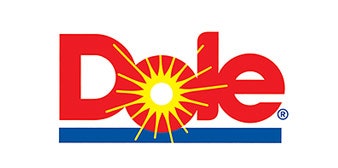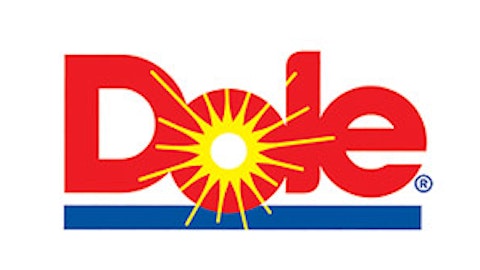
Going bananas
Last year was one of continued transformation and recovery for Chiquita Brands International, Inc. (NYSE:CQB), even if the income statement indicated otherwise. Back in 2010, the company was crippled by sky-high fuel costs and impossible market prices for bananas. Since then, the company has recovered quite a bit, though the market still values it cautiously.
For the year, the company came away with a net loss of $408 million, compared with a profit of $57 million in 2011. One would think that would be enough to send the stock straight down, but the company needed to reposition itself and has (hopefully) emerged a prepared competitor for this year. That $408 million loss included one-timers such as a $180 million impairment charge related to goodwill and trademarks of its salad business (Fresh Express has been a loser for the company as grocers have switched focus to private labels), $130 million in valuation allowances against deferred income tax assets, $35 million restructuring and relocation charges (the company moved its headquarters to Charlotte, N.C.), and a $32 million impairment charge for the company’s Danone joint venture. Without those items, the net loss would have been $31 million.
Chiquita Brands International, Inc. (NYSE:CQB) CEO Ed Lonergan wasn’t apologetic about the big upfront spending. He believes the company is in place to add “profitable volume” to the core banana and salad businesses for 2013. Lonergan came in as a replacement CEO this past October. He has a history of working with money-losing businesses — shedding poor-performing assets and emphasizing the moneymakers. Lonergan’s restructuring is estimated to save in the neighborhood of $60 million per year, but that could go up as time goes on. The company has been in desperate need of a margin boost for some time, and some analysts believe Lonergan is the one to do it.
The details
Let’s look beyond the headline numbers to identify any positive trends, if they exist.
For the year, banana sales ticked down two points to $2 billion because of a product supply surcharge in North America in 2011. U.S.-to-euro exchange rates hurt the company in Europe to the degree of $63 million in sales and $45 million in operating income.
One of the more encouraging factors for the company is the reduction in SG&A costs. For 2012, the company brought down SG&A by $25 million to $276 million. Also encouraging is the company’s recent refinancing that greatly extends debt maturity dates — reducing debt coverage payments in coming years and giving the company greater financial flexibility.
While looking back at 2012 leaves little to be excited about, the company does appear to have an attractive 2013 on the docket. For the coming year, Chiquita expects greater U.S. market share for its banana business as it has secured new contracts. The continued press into private-label items appears to be paying off, as a new grocer contract began shipments in the early months of this year.
Chiquita will continue to consolidate its business lines, abandoning non-core products and streamlining operations at plants around the world.
So how does the company look compared with its chief competitor, Dole Food Company, Inc. (NYSE:DOLE) ?
Comps, valuation, and the call
The company’s easiest comp is Dole, which is a much bigger company but operates in largely the same business. Dole had a successful 2012, with the stock price rising around 35% for the year. The company has a much richer valuation than Chiquita, though this is likely due to its more favorable position in the market. Dole Food Company, Inc. (NYSE:DOLE) has grown its business lines and added products such as Smoothie Shakers in the frozen aisles that should trend well with health-conscious, quick-eaters. The company recently completed the sale of its Asian division to Japanese company ITOCHU for $1.685 billion in cash.
At this point, Dole looks like a more stable business with predictable growth going forward. That is why it trades at 11.8 times forward earnings, compared with Chiquita’s 6.86. Dole Food Company, Inc. (NYSE:DOLE) has an EV/EBITDA ratio of 9.24, while Chiquita is actually more expensive at over 11.
The pricing pressure for bananas, in my opinion, will remain a challenge for both companies. Dole is further along in its consolidation process, and the evidence may already be baked into the stock price. Chiquita has more risk, but more room to run on the stock market. For the risk-averse, I would go with Dole Food Company, Inc. (NYSE:DOLE). For those up for the challenge, Chiquita Brands International, Inc. (NYSE:CQB) could offer more substantial capital appreciation in coming years.
The article Will These Companies Make Your Portfolio Go Bananas? originally appeared on Fool.com and is written by Michael Lewis.
Fool contributor Michael Lewis and The Motley Fool have no position in any of the stocks mentioned.
Copyright © 1995 – 2013 The Motley Fool, LLC. All rights reserved. The Motley Fool has a disclosure policy.

